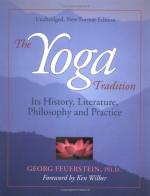|
This section contains 2,043 words (approx. 7 pages at 300 words per page) |

|
SOURCE: “Universal Aspirations: Social Theory and American Literary Culture,” in Modern Fiction Studies, Vol. 45, No. 4, Winter, 1999, pp. 1012-18.
In the following essay, Morgan reviews two 1998 texts dealing with the effects of modernization and globalization on late-nineteenth-century intellectuals, commenting on the resonating power of questions raised by social theorists at the turn of century.
In Middlemarch (1871), George Eliot portrays nineteenth-century intellectuals as victims of the totalizing ambitions of their vocations. Causabon, a theologian, strives to codify the “Key to All Mythologies” and Lydgate, a doctor and medical researcher, seeks the “primitive tissue” from which bodily organs develop. In the desacralized world of the novel, God is displaced by vain specialists whose scientific fantasies of recuperated wholeness and biological unity drive them to premature deaths. Conversely, Eliot's sole personification of cosmopolitan acceptance is the slight Will Ladislaw. A dilettante whose touristic perspective enables him to enjoy the amalgamation of cultures...
|
This section contains 2,043 words (approx. 7 pages at 300 words per page) |

|


